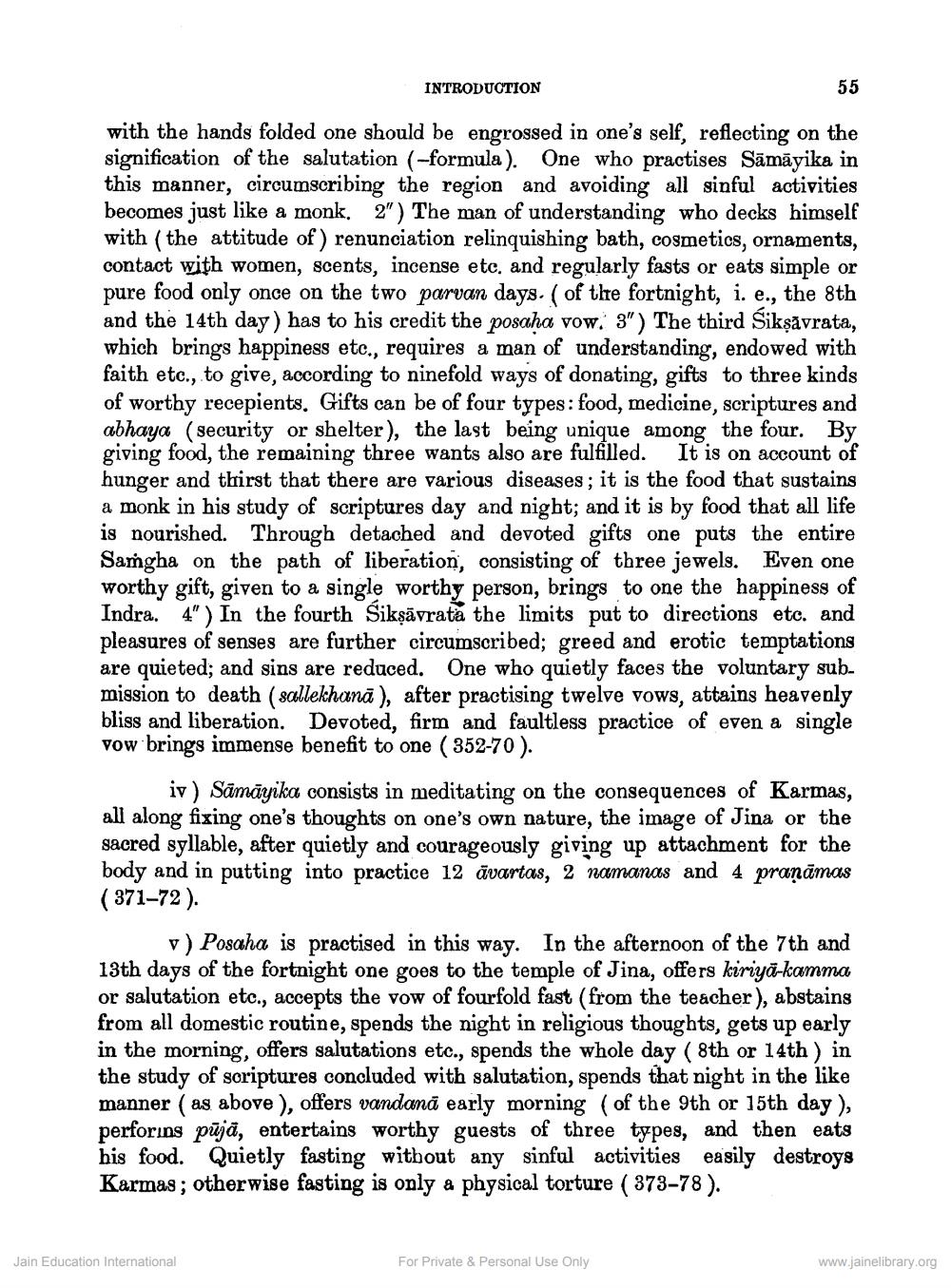________________
INTRODUCTION
55
with the hands folded one should be engrossed in one's self, reflecting on the signification of the salutation (-formula). One who practises Sāmāyika in this manner, circumscribing the region and avoiding all sinful activities becomes just like a monk. 2") The man of understanding who decks himself with (the attitude of) renunciation relinquishing bath, cosmetics, ornaments, contact with women, scents, incense etc, and regularly fasts or eats simple or pure food only once on the two parvan days. (of the fortnight, i. e., the 8th and the 14th day) has to his credit the posaha vow. 3") The third Śikṣāvrata, which brings happiness etc., requires a man of understanding, endowed with faith etc., to give, according to ninefold ways of donating, gifts to three kinds of worthy recepients. Gifts can be of four types: food, medicine, scriptures and abhaya (security or shelter), the last being unique among the four. By giving food, the remaining three wants also are fulfilled. It is on account of hunger and thirst that there are various diseases; it is the food that a monk in his study of scriptures day and night; and it is by food that all life is nourished. Through detached and devoted gifts one puts the entire Samgha on the path of liberation, consisting of three jewels. Even one worthy gift, given to a single worthy person, brings to one the happiness of Indra. 4") In the fourth Sikşāvrata the limits put to directions etc. and pleasures of senses are further circumscribed; greed and erotic temptations are quieted; and sins are reduced. One who quietly faces the voluntary submission to death (sallekhana), after practising twelve vows, attains heavenly bliss and liberation. Devoted, firm and faultless practice of even a single vow brings immense benefit to one ( 352-70).
iv) Sāmāyika consists in meditating on the consequences of Karmas, all along fixing one's thoughts on one's own nature, the image of Jina or the sacred syllable, after quietly and courageously giving up attachment for the body and in putting into practice 12 avartas, 2 namanas and 4 praņāmas ( 371–72).
v) Posaha is practised in this way. In the afternoon of the 7th and 13th days of the fortnight one goes to the temple of Jina, offers kiriyā-kamma or salutation etc., accepts the vow of fourfold fast (from the teacher), abstains from all domestic routine, spends the night in religious thoughts, gets up early in the morning, offers salutations etc., spends the whole day (8th or 14th ) in the study of scriptures concluded with salutation, spends that night in the like manner ( as above), offers vandanā early morning of the 9th or 15th day), perforins pūjā, entertains worthy guests of three types, and then eats his food. Quietly fasting without any sinful activities easily destroys Karmas; otherwise fasting is only a physical torture ( 373-78).
Jain Education International
For Private & Personal Use Only
www.jainelibrary.org




